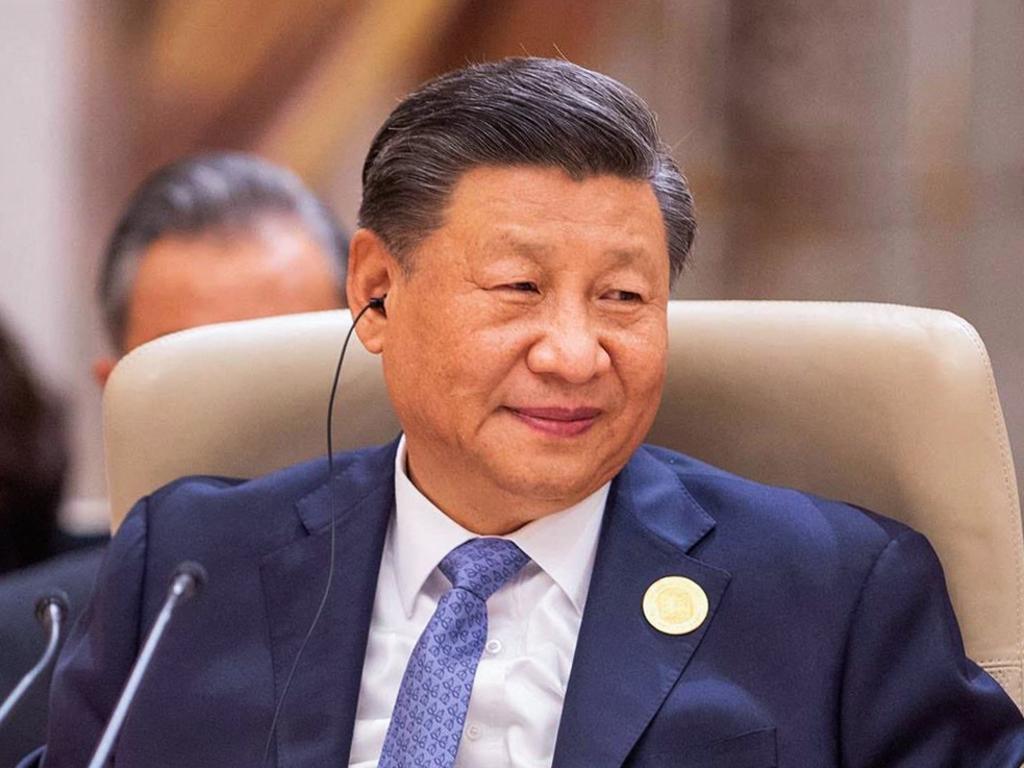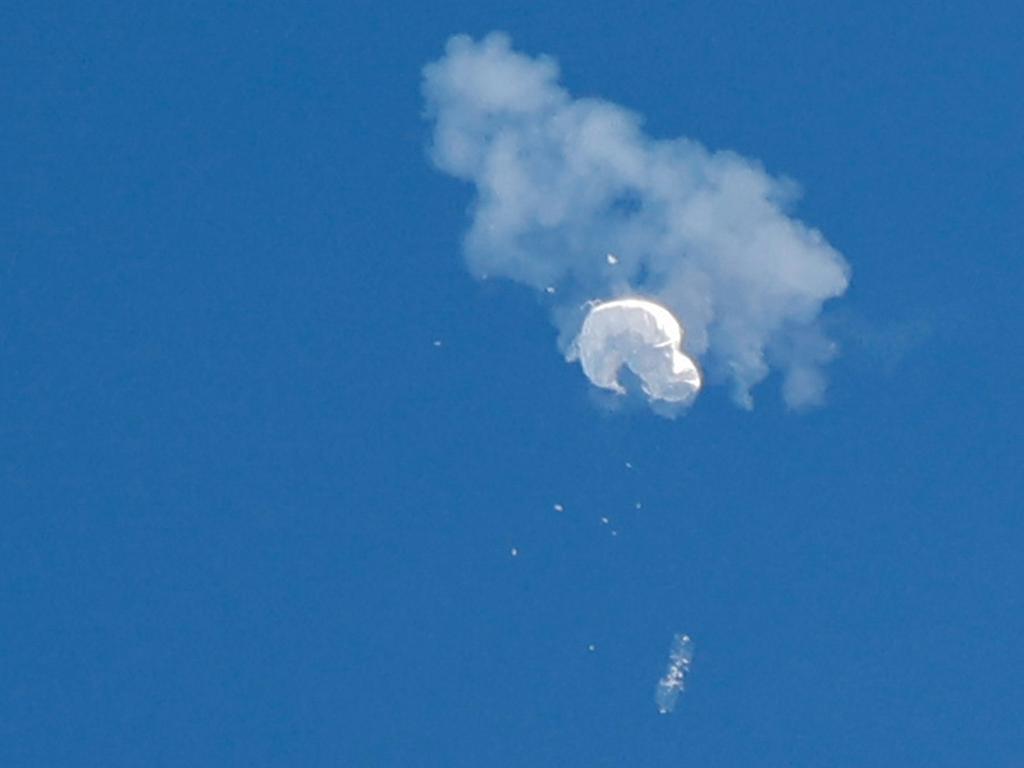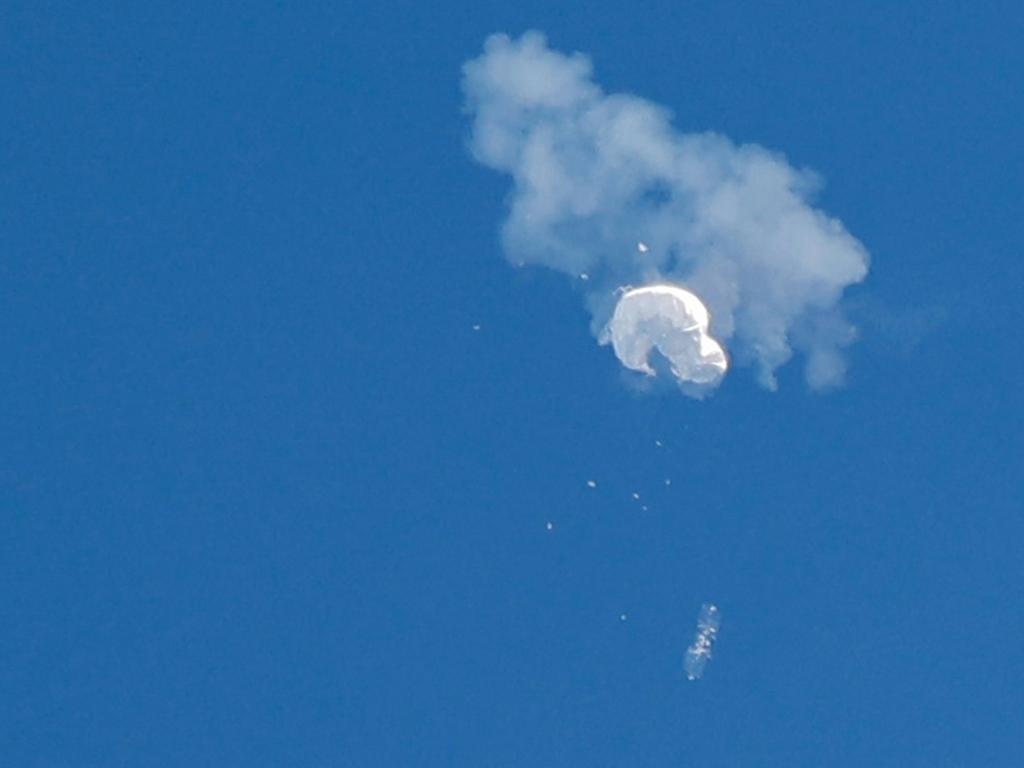Beijing’s weather balloon yarn is filled with hot air
Joe Biden must now be tough on China in the lead-up to next year’s presidential election, lest he be accused of being soft.

If the Chinese Communist Party had a better communications department it might have at least claimed to have been conducting climate change research.
Beijing’s relatively clumsy intelligence-gathering skills are still no match for the sophistication of the Five Eyes nations, including the US and Australia.
As one senior official in Washington said after news of the balloon, so inexpertly camouflaged to be clearly visible from the ground, had broken: “If we’d done it, we wouldn’t have been discovered.”
France pioneered hot-air balloons for intelligence-gathering in the late 18th century, but has since moved on.
In the longer run, China will gain the edge over Western nations owing to a critical advantage: a large overseas Chinese-born population in the US and Australia, some of whom will inevitably pass information back to Beijing.
Douglas Wise, the former No.2 at the US Defence Intelligence Agency until 2016, who before that spent years at the CIA, pointed out to me in a recent interview that under Chinese law every Chinese, whether they live in China or not, “extraterritorially is obligated by law to be part of the intelligence apparatus”.
Chinese intelligence-gathering doesn’t stop at the payroll of the formal Chinese intelligence agencies, he said.
“China’s security services will allude or directly tell ethnic Chinese outside China ‘it would be a shame for this kind of thing to happen to your family so it’d be very helpful if you would tell us a little bit about what you do, how you do it, what are you working on currently, with whom you do it, whom do you know who would know this information’,” he explained.
“You can imagine the pressure China’s government can put on your family: threat of incarceration, a low social credit score, which means no medical care, no economic opportunities, no social opportunities, no travel and no way to earn,” he continued.
Wise was rightly quick to stress that we shouldn’t impute disloyalty to ethnic Chinese, the vast bulk of whom are law-abiding and loyal, and who obviously have greatly enriched Australia and the US.
Clive Hamilton, in his insightful 2018 book, The Silent Invasion: China’s Influence in Australia, drew attention to the problem, but it’s a challenge that neither nation, each with huge ethnic Chinese populations, has fully acknowledged.
A quick internet search reveals the number of Chinese, including some US-born, arrested for espionage activities has greatly increased in recent years, including a Chinese professor of chemistry at Harvard University in 2020.
Wise also pointed out another advantage: the Chinese – and Russians, for that matter – “don’t have political accountability” to which Western intelligence operations must adhere. “They don’t operate under rule of law or a moral frame of reference.”

Sending a surveillance balloon the size of three buses over the US in the lead-up to a historic visit by the US Secretary of State to Beijing was a strange move by the CCP. Maybe President Xi Jinping wasn’t aware of the balloon – US presidents haven’t always been fully across what their security agencies have been up to around the world.
Regardless, the episode has set back any US-China rapprochement by months at least, which is bad news for Australia, given Beijing tends to lump us in with the Americans.
In the short term, Russia was probably the only winner out of the US military’s downing of the Chinese spy balloon. To be sure, the US had no choice but to destroy the floating fortress of Chinese surveillance gadgetry the size and weight of a small building.
But the political fallout, both within the US and internationally, makes any hoped-for rapprochement between Washington and Beijing less likely, playing into Russia’s hands as it makes grindingly slow progress in its invasion of Ukraine.
The last thing Moscow needs is a China more susceptible to American overtures, an outcome that’s less likely in the wake of Beijing’s balloon fiasco.
Secretary of State Antony Blinken cancelled his trip to China, which would have been the first at that level since 2018, putting off indefinitely the time the two superpowers talk face to face.
Multiple reports, including in The Wall Street Journal and The New York Times, have suggested Beijing has already ignored US warnings against helping its new-found ally, by turning a blind eye to the provision of various militarily useful equipment to Moscow by some large state-owned corporations.
Such assistance is more likely to increase after China’s indignant reaction, claiming the US response was “excessive”, even though it would have surely reacted the same way, and probably far sooner with less concern for potential damage from debris over its territory.
President Joe Biden will now have to appear tough on China in the lead-up to next year’s presidential election, lest he be tarred with the “soft on China” brush by Republicans, some of whom hysterically insisted the US shoot down the balloon immediately, regardless of the risk to life and property 18km below. Indeed, Blinken might still have gone to China – he could have told the Chinese of his displeasure in person – were it not for domestic political considerations.
There’s a lot of hypocrisy on both sides when it comes to espionage. All nations do it to greater or less extents.
We can be sure the Chinese won’t be floating any surveillance balloons over the US again anytime soon, and if they dare, perhaps even the Americans – for the sake of bilateral relations – will be hoping they do a better job of it than this time.








China was deservedly humiliated at the weekend after its spy balloon was shot down over the Atlantic Ocean off the Carolinas coastline by the US military, a device Beijing had comically described as a meteorological aircraft that had “blown offcourse” – conveniently above US intercontinental missile facilities in Montana.